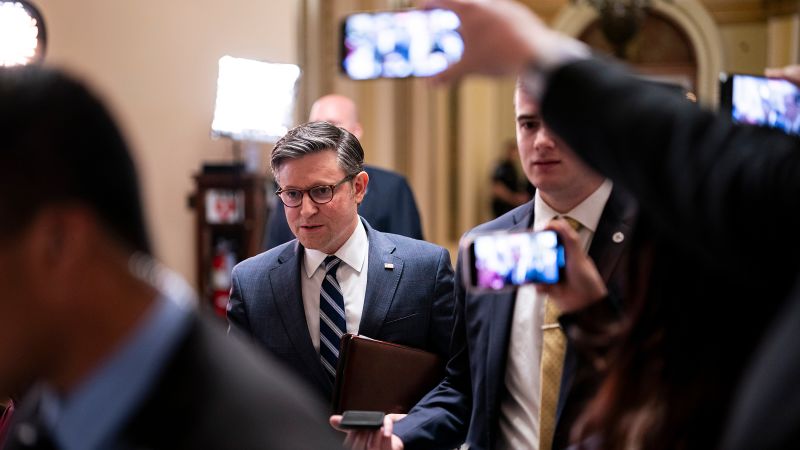House lawmakers are returning to Washington to address the contentious issue of reauthorizing Section 702 of the Foreign Intelligence Surveillance Act, which allows warrantless surveillance of foreigners but also collects the communications of American citizens. House Republicans are divided on how to handle the issue, putting Speaker Mike Johnson under pressure to find a way forward amidst competing factions within his conference. Some lawmakers are pushing for reforms to the authority, while others oppose major restrictions, particularly regarding the FBI’s warrantless searches of the database for information on US citizens.
The Reforming Intelligence and Securing America Act, introduced by GOP Representative Laurel Lee of Florida, is a proposed bill that seeks to reauthorize Section 702 of FISA for five years and implement a series of reforms. The bill will be considered by the House Rules Committee, with expected amendments including one that would require an additional warrant before querying the database. However, concerns have been raised that such reforms could impact the effectiveness of national security tools to combat threats against the United States. The Biden administration has been lobbying against any warrant requirement, emphasizing the importance of Section 702 in combating security threats.
While the authorities for Section 702 were extended through April 19, discussions in Congress have highlighted the challenges associated with reauthorizing the law. Internal GOP divisions led leadership to pull surveillance law bills from the floor in December, and a spokesperson for the speaker indicated that FISA reform would be considered at a later date to allow for more consensus on the issue. Critics argue that loopholes in the law allow the FBI to search for Americans’ information without proper justification, leading to concerns about privacy violations. Revelations of compliance issues within the FBI have further fueled bipartisan calls for reform.
The authority granted under FISA has become a political target for conservative Republicans, particularly after reports of inappropriate surveillance during the Trump campaign. Despite ongoing calls for reform from privacy advocates, administrations have maintained the authority as a crucial tool for counterterrorism efforts and national security operations. However, there is increasing bipartisan acknowledgment of the need for stricter safeguards to prevent abuses of the authority. Speaker Johnson has emphasized the importance of balancing security concerns with privacy protections, expressing the need to rein in potential abuses while maintaining essential surveillance capabilities.
The proposed reforms in the upcoming legislation aim to establish new procedures to hold the FBI accountable, increase transparency in the Foreign Intelligence Surveillance Court, and impose penalties for misconduct. The goal is to strengthen oversight and prevent future abuses of the surveillance authority while preserving critical tools for national security. As lawmakers navigate the complexities of FISA reauthorization, the debate underscores the delicate balance between security interests and individual rights. With heightened scrutiny and divergent opinions on the issue, finding consensus on the reauthorization of Section 702 will be a significant challenge for House lawmakers.


